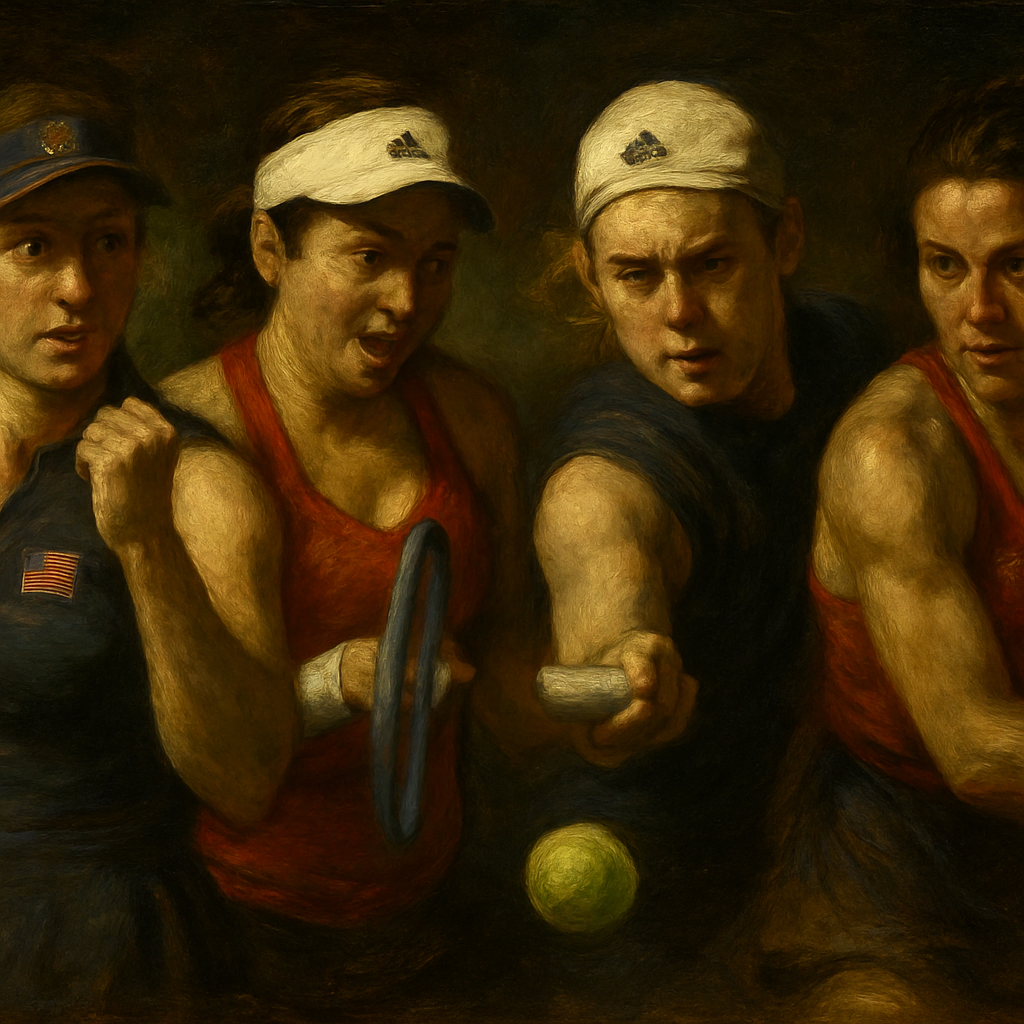GLASGOW — Great Britain’s Billie Jean King Cup team stands on the precipice of a historic final, but to reach it they must overcome the ultimate challenge: a semi-final against the mighty United States. Captain Anne Keothavong has rallied her squad with a powerful message, insisting they have "nothing to lose" against the 18-time champions. BBC Sport takes a closer look at the key match-ups that will decide this tantalising tie.
The Emirates Arena in Glasgow has become a fortress for the British team, whose run to the last four has been fuelled by a potent mix of home-court advantage and stellar performances from their leading players. However, the United States presents a different calibre of opponent, boasting a squad rich in Grand Slam pedigree and current form. The tie is a classic clash of a nation riding a wave of belief against a tennis superpower accustomed to winning.
The Anchor: Katie Boulter vs Jessica Pegula
All eyes will be on the opening rubber, where British number one Katie Boulter is expected to face world number five Jessica Pegula. Boulter has been in inspired form this season, winning the San Diego Open and delivering crucial victories in the qualifiers against France and previous rounds. Her powerful, flat groundstrokes and aggressive returning will be key. However, Pegula is one of the most consistent and tactically astute players on tour. Her rock-solid baseline game and elite returning prowess make her a formidable opponent on any surface.
Boulter’s strategy will likely involve taking risks early in the rally to prevent Pegula from settling into a rhythm. The key battle will be Boulter’s forehand against Pegula’s impeccable backhand. Keothavong acknowledged the scale of the task, stating: "On paper, they are the favourites. They have a team full of top players who are used to these high-pressure situations. But we’ve earned our place here, and we will fight for every point."
The Clash of Styles: Raducanu's Wildcard
The potential second singles match offers a fascinating narrative, with the possibility of US Open champion Emma Raducanu taking on former world number one Naomi Osaka. Raducanu, playing on a captain’s pick, brings an element of the unknown. Her explosive power and fearless shot-making can dismantle any opponent on her day. Osaka, returning to the BJK Cup fold for the first time since 2020, possesses some of the biggest weapons in the women’s game. A match between these two would be a contrast of Raducanu’s fluid movement and aggressive returning against Osaka’s devastating serve and monumental forehand.
The mental fortitude required in a team environment differs greatly from the individual tour. Raducanu has thrived in this setting before, noting: "There's something special about playing for your country. The energy from the team and the crowd, it lifts you. You're not just playing for yourself."
The Doubles Decider
If the tie goes to a deciding doubles rubber, as many expect it might, both teams are exceptionally well-equipped. Great Britain can call upon the established partnership of Olivia Nicholls and Heather Watson, whose chemistry and net-play have been crucial. Watson’s experience is invaluable, and Nicholls’ sharp volleys make them a constant threat. The USA, however, could deploy the world's best doubles player, Coco Gauff, alongside either Taylor Townsend or Pegula. Gauff’s athleticism and powerful serve-and-volley game make her a nightmare matchup.
The doubles often comes down to a few key moments:
- First Serve Percentage: Getting the first serve in is paramount.
- Net Dominance: The team controlling the net usually controls the match.
- Handling Pressure: The ability to execute under the immense weight of a live fifth rubber.
The Home Court Factor
The Glasgow crowd has been a decisive factor throughout the finals, creating an intimidating and raucous atmosphere for visiting teams. The British players have consistently credited the fans for giving them an extra edge in tight moments. US captain Kathy Rinaldi is aware of the challenge, but is confident in her team’s big-match temperament: "Our players have experience playing in some of the biggest stadiums in the world. They know how to block out the noise and focus on the tennis. We respect the British team and their fans, but we’re here to win."
The choice of surface and ball speed, decided by the home nation, will also play a subtle but important role. A faster court could benefit the bigger hitters on the US team like Osaka and Gauff, while a slightly slower pace might allow the British players to extend rallies and use their variety.
Conclusion: Belief vs. Pedigree
This semi-final is ultimately a battle between British belief and American pedigree. Great Britain’s journey has been built on a collective spirit and players performing above their ranking. The United States, on paper, is the stronger team from one to four. However, the unique pressure of team competition has a habit of rewriting the script. If Boulter can spring an upset in the first rubber, the momentum could swing decisively towards the home team. If the USA establishes an early lead, their depth and experience will be incredibly difficult to overcome.
As Keothavong succinctly put it, her team is playing with house money. "The pressure is all on them. We are the underdogs, we are at home, and we are going to leave everything we have out on that court. We’ve already achieved so much. Now we have a free swing at the champions. That’s a dangerous position for any opponent to face." The stage is set for a classic encounter where heart, strategy, and a thunderous Glasgow crowd could just be the ingredients for a monumental upset.

